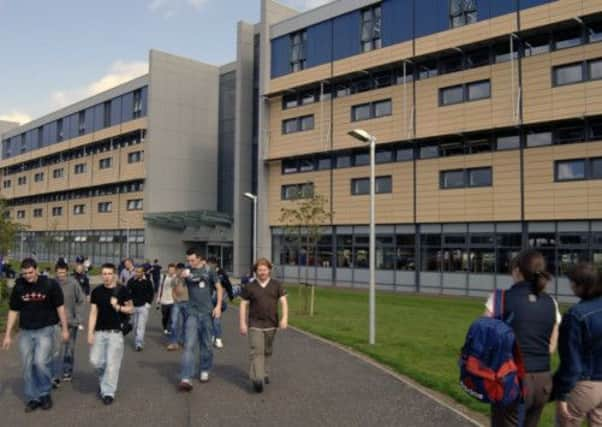College pay levels ‘vary by up to 100%’


A survey by the Scottish Funding Council, which hands out money to colleges and universities on behalf of the Scottish Government, also found significant differences in holiday entitlement and working hours.
Earlier this week, MSPs passed the Post-16 Education (Scotland) Bill, which will allow for a return to national pay bargaining for staff, one of the recommendations of a report on college governance published last year.
Advertisement
Hide AdAdvertisement
Hide AdThe SFC analysis found the average salary of heads of faculty or school could range from £35,683 to £70,000 per annum.
The salary for basic-grade lecturers ranged from £31,009 to £32,274, while at associate principal level, the average salary ranged from £50,321 to £75,975.
The differences in pay were not confined to teaching staff, however, with student services managers, for example, earning between £25,572 and £53,200 – a variance of £27,628.
The SFC report said the variation in salaries for some groups could be explained, in part, by “local pay bargaining over a period of many years”.
A report by Professor Russel Griggs, published last year for the Scottish Government, called for a return to national bargaining to help end pay disparities. The recommendation was included in the Post-16 Education Bill, passed by MSPs this week.
A spokesman for the Educational Institute of Scotland, the country’s largest teaching union, said it had long campaigned for a return to national bargaining, which ended in the 1990s.
John Henderson, chief executive at umbrella organisation Colleges Scotland, added: “We are supportive of a return to national pay bargaining and are working with our members and other parties to deliver that in a constructive way. The Scottish Funding Council’s study and other work will help inform this process.”
According to the SFC survey, the number of hours teaching staff spend in class also varies widely. Although promoted lecturers most commonly had 18 hours, this ranged from 12 to 24 hours, depending on the college.
Advertisement
Hide AdAdvertisement
Hide AdTwo-thirds of colleges reported basic-grade lecturers were entitled to 60 days’ annual leave, but at the remaining colleges the number was set anywhere between 55 and 65. The number of days of annual leave entitlement for curriculum managers ranged from 41 to 65 days.
A Scottish Government spokeswoman said: “This piece of work was commissioned following the Griggs report and confirms what we have long suspected – that there is a wide disparity in the pay and conditions of college staff. This is one of the reasons we are seeking to introduce national pay bargaining.
“The Post-16 Education (Scotland) Bill contains measures designed to pave the way for national pay bargaining and a team to take this work forward is in place. The chair of Edinburgh College, Ian McKay, is leading this effort, liaising with regional college leaders, and unions will also be a central partner in those discussions that will lead to a coherent national pay structure for college staff.”
College must lower number of drop-outs
INSPECTORS want to see improvements at one of Scotland’s colleges to address poor attainment levels and a high drop-out rate.
Education Scotland found that just 58 per cent of full-time students complete their studies at Stow College in Glasgow.
Inspectors noted the drop-out rate had improved in recent years, but said that in some courses withdrawal rates were “high” and attainment “low”.
The report states: “The proportion of learners successfully completing their full-time FE programmes has increased significantly over the last three years. However, overall successful completion rates for 2011-2012 remain 6 per cent below the corresponding national sector performance level. A further 11 per cent of learners complete with partial success. In the majority of subject areas, the proportion of learners completing full-time FE programmes successfully is below corresponding national subject levels.”
Stow is expected to merge with other Glasgow colleges this year to form a super college.
The college was at the centre of a row involving education secretary Mike Russell last year after then chairman, Kirk Ramsay, was accused of secretly recording the minister.